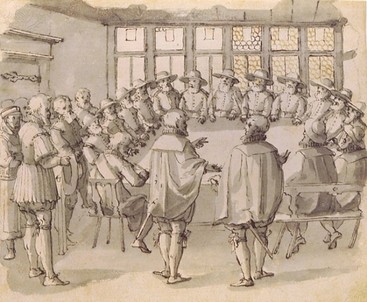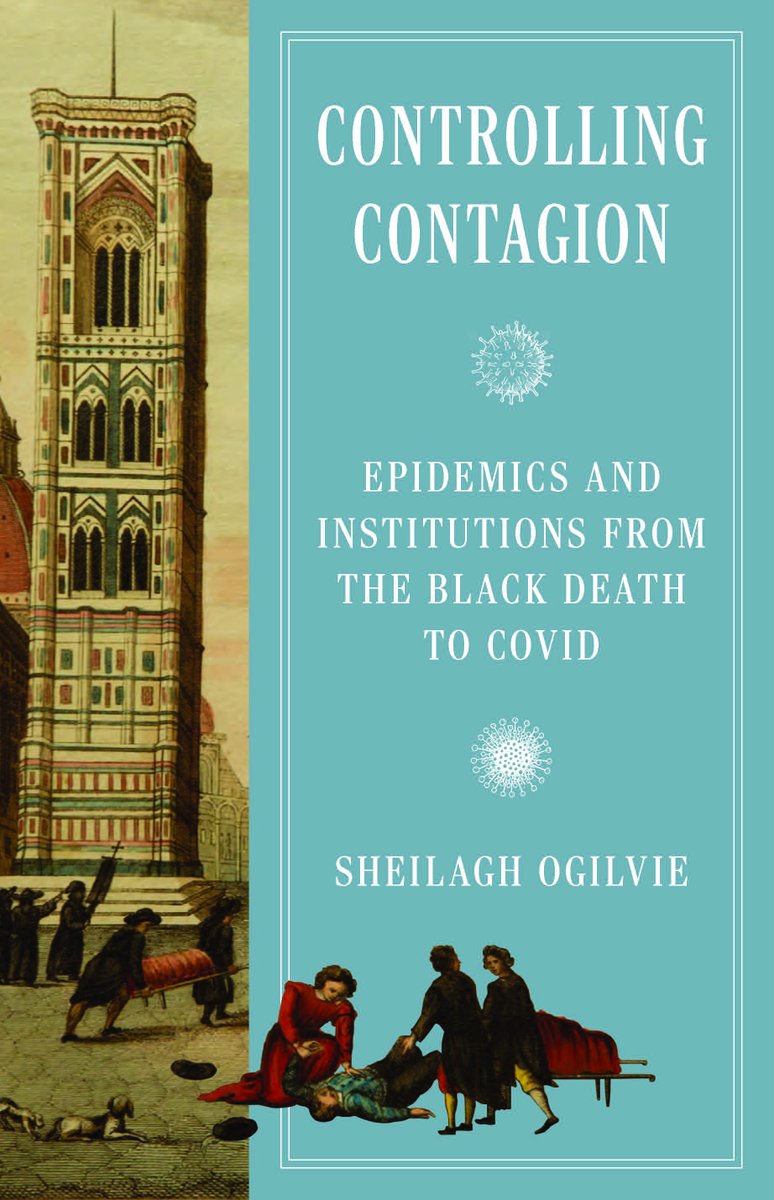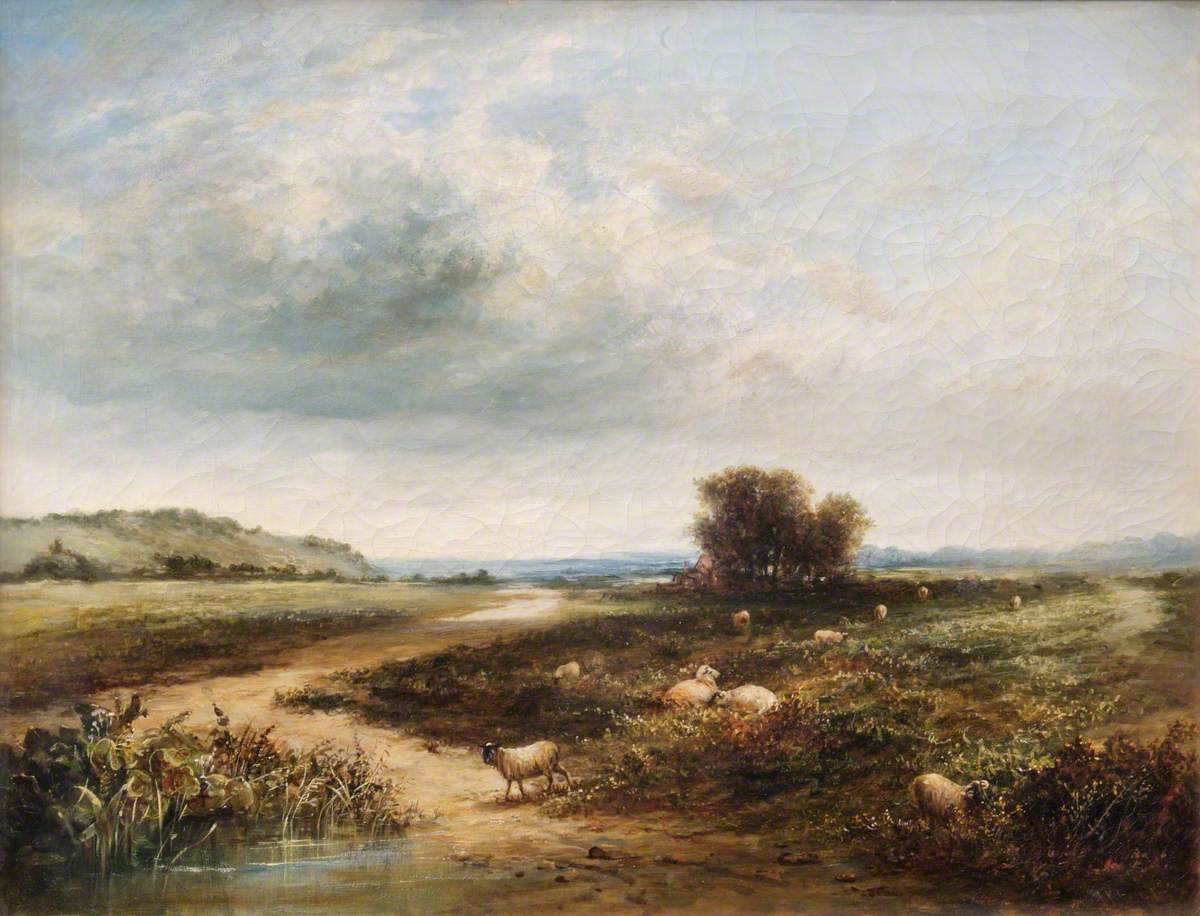
Sheilagh Ogilvie
@SheilaghOgilvie
Chichele Professor of Economic History, All Souls College, Oxford
Happy to say my new book, “Controlling Contagion”, comes out next month. 700 years of tackling pandemics. Not all bad news… press.princeton.edu/books/hardcove…

Sewer access shapes developing world cities. New research shows effects on population density as large as for highways, but little on demographics, from @SeanMcCulloch11, @MattSchaelling, Matthew Turner, and Toru Kitagawa nber.org/papers/w33597
Adam Smith, The Wealth of Nations, V:I, Part III, on government, externalities and public goods
"it would deserve the most serious attention of government... to prevent a leprosy, or any other loathsome and offensive disease... from spreading itself... though, perhaps, no other public good might result from such attention, besides the prevention of so great a public evil"
"it would deserve the most serious attention of government... to prevent a leprosy, or any other loathsome and offensive disease... from spreading itself... though, perhaps, no other public good might result from such attention, besides the prevention of so great a public evil"
Wonderful hosts and amazing audience in Edinburgh yesterday for Adam Smith Lecture on “Market, State, and Contagion from the Black Death to Covid”. @AdamSmithHouse @OxfordESH @PrincetonUPress
Wonderful hosts and amazing audience in Edinburgh yesterday for Adam Smith Lecture on “Market, State, and Contagion from the Black Death to Covid”. @AdamSmithHouse @OxfordESH @PrincetonUPress
Last night we had the pleasure of welcoming Professor @SheilaghOgilvie to Panmure House, where she delivered a lecture exploring the fascinating parallels between pandemics and the institutions of social and economic life. Facilitated by @DrAdam_Dixon, the audience was guided…
A pleasure to talk about serfdom and my Leverhulme project yesterday at the Arthur Lewis Lab for Comparative Development. @OxfordESH @ArthurLewisLab @LeverhulmeTrust #echist
Sheilagh Ogilvie (Oxford) is now presenting her paper “Was Serfdom Good for the Economy? Peasants, Lords, and Markets in Early Modern Bohemia” 👇🏼
It didn't exactly benefit the special-interest groups, either. @OxfordESH #echist press.princeton.edu/books/hardcove…
What does history tell us about trade barriers to favour domestic interest-groups? On guilds and trade in medieval Europe, check out this BBC series, broadcast again this week. @BBCRadio4 @OxfordESH #echist bbc.co.uk/programmes/b09…
What does history tell us about trade barriers to favour domestic interest-groups? On guilds and trade in medieval Europe, check out this BBC series, broadcast again this week. @BBCRadio4 @OxfordESH #echist bbc.co.uk/programmes/b09…

Has the black box of "state capacity" ever frustrated you? These guys are prying it open ...
New working paper by @kivanc_karaman, @EcHistorian, & myself. Contrary to conventional wisdom, we find that constrained government & state capacity were not systematically related. England stood out for combining both, which helps explain its modern econ. growth take-off. 1/15👇
Had a fun podcasting with Tyler Cowen on “Controlling Contagion”, guilds, and the persistence of bad institutions @OxfordESH @PrincetonUPress
My Conversation with the excellent Sheilagh Ogilvie marginalrevolution.com/marginalrevolu…
Wonderful audience today for “Controlling Contagion” at the Oxford Literary Festival @PrincetonUPress @OxfordESH
A great talk this morning from @SheilaghOgilvie as part of the @oxfordlitfest on her new book ‘Controlling Contagion’ in which she examines economic and institutional responses to pandemics across the last 700 years 🦠 😷
Do revolutions break out when peasants are poor? Or when they realize they shouldn’t be? And what role does God play? Still trying to puzzle this out, 5 centuries after the Peasants’ War (podcast in German): open.spotify.com/episode/0ZVeNF…

How can we raise the Human Development Index? Life expectancy at birth = 1/3 of the HDI. Infant and maternal deaths started to fall around 1650 – but why? Alice Reid’s incisive analysis of a complex, 300-year story: @amrcampop @CamUniCampop campop.geog.cam.ac.uk/blog/2025/03/2…
We are now inviting applications for a 2-year full-time Departmental Lecturer in Economic and Social History @OxfordHistory. Applications should be submitted online and before noon Wednesday 23 April - details below! #econhist #twitterstorians history.ox.ac.uk/event/departme…
JOB OPPORTUNITY: Associate Professorship in Economic and Social History, Faculty of History and All Souls College, Oxford. Deadline for applications 23 April 2025. @OxfordHistory @OxfordESH @EconHistAssoc @EcHistSoc @The_EHES my.corehr.com/pls/uoxrecruit…
Why do sewers matter for the economy? People like them! But not only that: sewers encourage agglomeration economies, making us more productive. Super interesting new working paper: papers.ssrn.com/sol3/papers.cf…
“Leave fast. Go far away. Come back slowly.” Was “Cito, Longe, Tarde” the only way of controlling contagion? Some answers at the Oxford Literary Festival on 3 April @PrincetonUPress oxfordliteraryfestival.org/literature-eve…

Any advice for someone waking up in 1348 to find the Black Death had arrived? How much did it change by 2020? Some ideas in “Controlling Contagion” - out today in Europe. @PrincetonUPress press.princeton.edu/books/hardcove…

Ever wondered what happened behind the harmonious facade of the traditional village community? Were the "commons" really open to the common people? More pathbreaking work in the Campop 60th birthday series: campop.geog.cam.ac.uk/blog/2025/02/0…

Nearly every religion claims to be cleaner than all the others. This claim can’t be true for all religions. But is it true for any? And could it affect disease outcomes? This nice study suggests so: doi.org/10.1093/ej/uez…

Did religion affect epidemics through hygiene? For astute reflections on some colourful ideas, I enjoyed Jeremy Brown’s “The Eleventh Plague” global.oup.com/academic/produ…